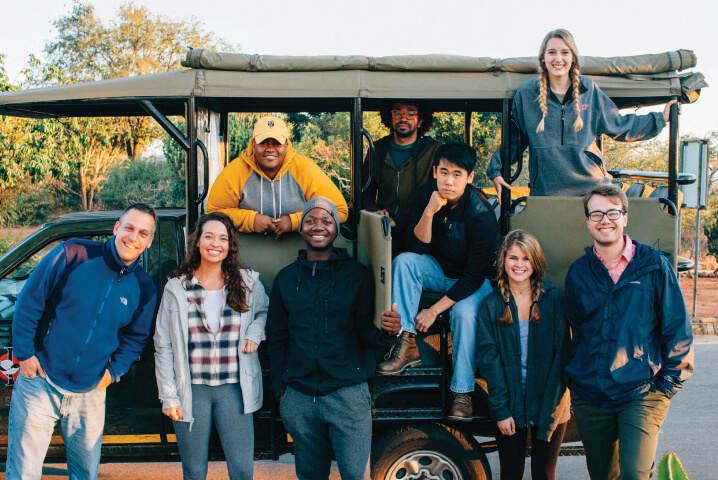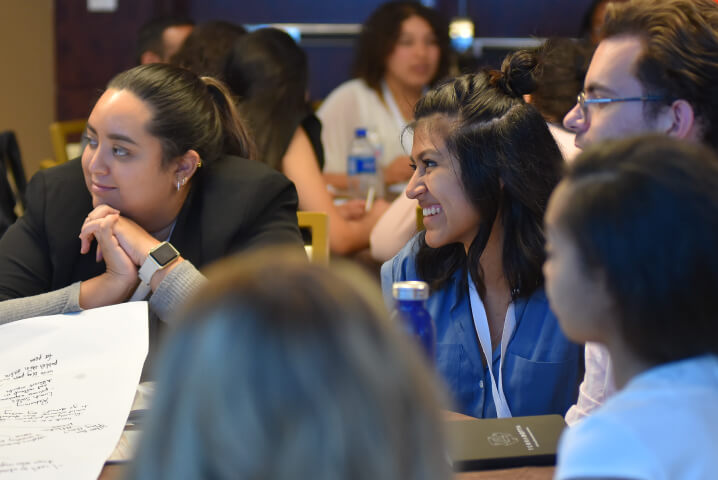Title: Diversity Explained: What European Students Should Know About U.S. Colleges
Presenters:
- Monique Hodges, Tulane University
- Alejandra Rincon, UCSF
Description:
The United States has been historically a popular destination for students seeking to study abroad. Current controversies around “Diversity, Equity and Inclusion” (DEI) have created confusion about what this work entails, who these efforts are targeted to and general concerns about safety for students of particular marginalized identities.
This session seeks to demystify equity, inclusion, belonging and accessibility as work that serves everyone without preference or prejudice. Participants will explore the concept of intersecting identities and learn strategies to help European students understand how various aspects of culture and identity will enhance their experiences at U.S. colleges or universities.
Attendees will also examine the historical context of college and university access in the United States, exploring how diversity has evolved over time with intentionality and impact to serve everyone. While this work continues to face increased scrutiny, the need for engagement, equity, and access for all students remains critical in a global society.
Title: Holistic Support Strategies for U.S. Students in Europe (pre-arrival)
Presenters:
- Ethan Trinh, Georgia State University
- Kyle Keith, Barcelona SAE
Description:
Providing effective and inclusive support is key to fostering academic success for U.S. students in Europe. This session discusses strategies European institutions are using to ensure all students thrive academically and personally.
- Identify specific academic and non-academic challenges U.S. students face in European educational contexts.
- Discuss tailored support systems implemented by European institutions for diverse student populations.
- Highlight initiatives for inclusive student success, such as peer mentoring, accessible resources, and identity-specific programs.
- Explore the impact of cultural adjustment support on students’ overall academic and personal growth.
Title:Bringing the Joy Back: Sustaining Ourselves In Our Work
Presenters:
- Keshia Abraham,PhD, President & Founder, The Abraham Consulting Agency
Description:
In the ever evolving landscape of global learning and study abroad—especially for those advancing justice and equity with dignity and intention—the emotional, physical, and spiritual toll of this work can quietly accumulate. This session invites participants to pause and reflect on self-care and their own sustainability. Drawing on wisdom from holistic cultural frameworks shared throughout our diasporas, Ayurvedic traditions, and collective care frameworks like Ubuntu, we will explore how to restore joy, energy, and meaning within our professional practice. Through embodied exercises, storytelling, and intentional dialogue, we will name what sustains us, identify what drains us, and begin to braid personal and communal practices of nourishment back into our lives.
Participants will leave with at least one personalized strategy or daily ritual to support their own well-being while continuing to lead transformative global learning experiences for others.
Title: Learning Where You Live: Engaging with Local Communities while Abroad
Presenters:
- Marta Minguella, Barcelona SAE
- Maria Mateu, ISEP
Description:
On-site engagement with local communities offers invaluable opportunities for cultural and experiential learning. This session will explore how European institutions can deepen students’ understanding through meaningful collaborations with diverse populations. Participants will gain practical tips and strategies for engaging local communities when developing and implementing experiential learning programs. Using the city of Barcelona as a case study, we will examine the benefits and impact of such engagement on students, institutions, and the local community.
- Examine the benefits of fostering cultural engagement with local, diverse communities.
Explore case studies from Barcelona that showcase collaborations with marginalized groups, such as refugees, to enrich student learning.
Discuss how experiential learning activities deepen cultural understanding and global competence.
Highlight methods for evaluating the impact of such programs on students and host communities



